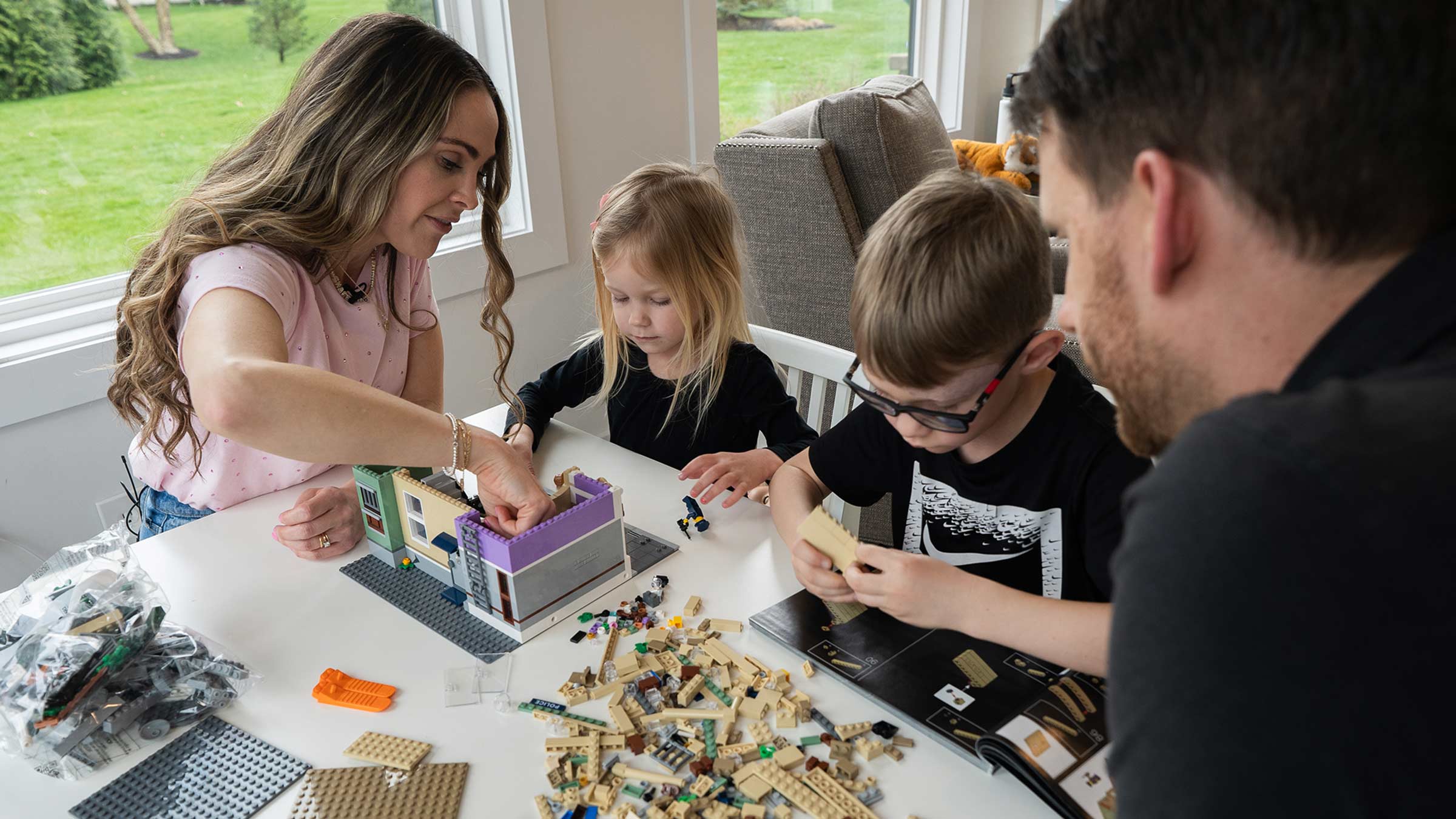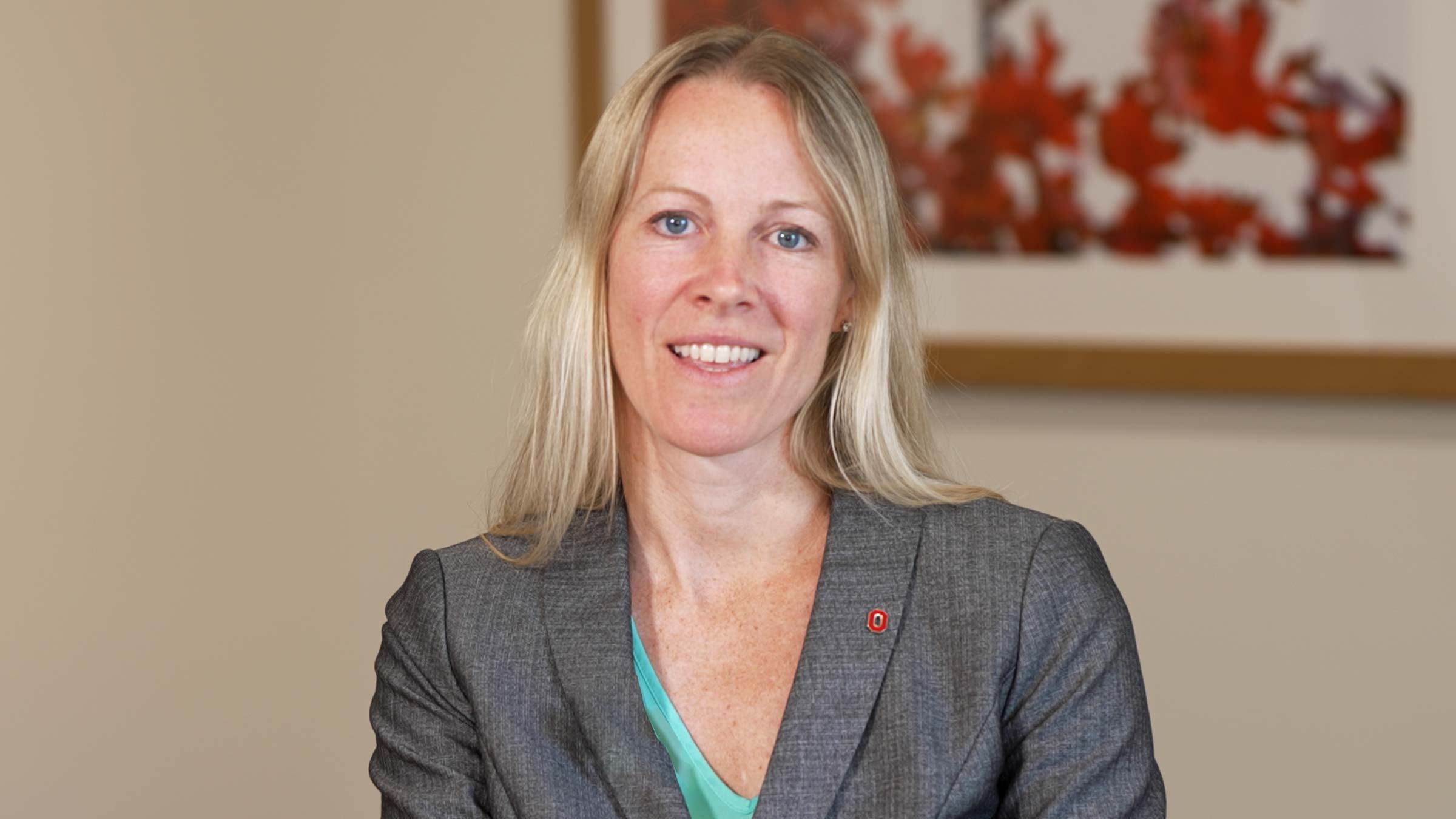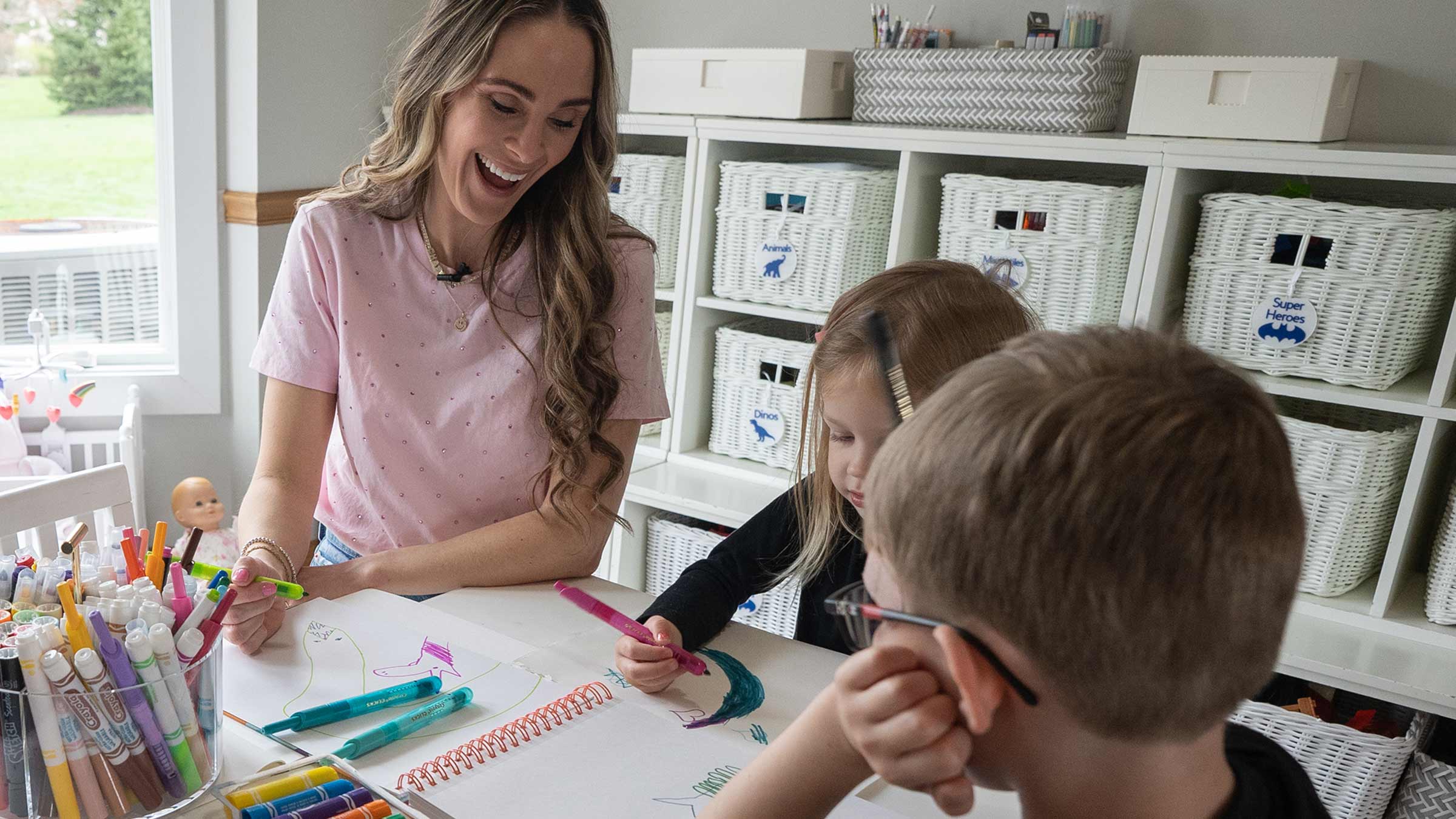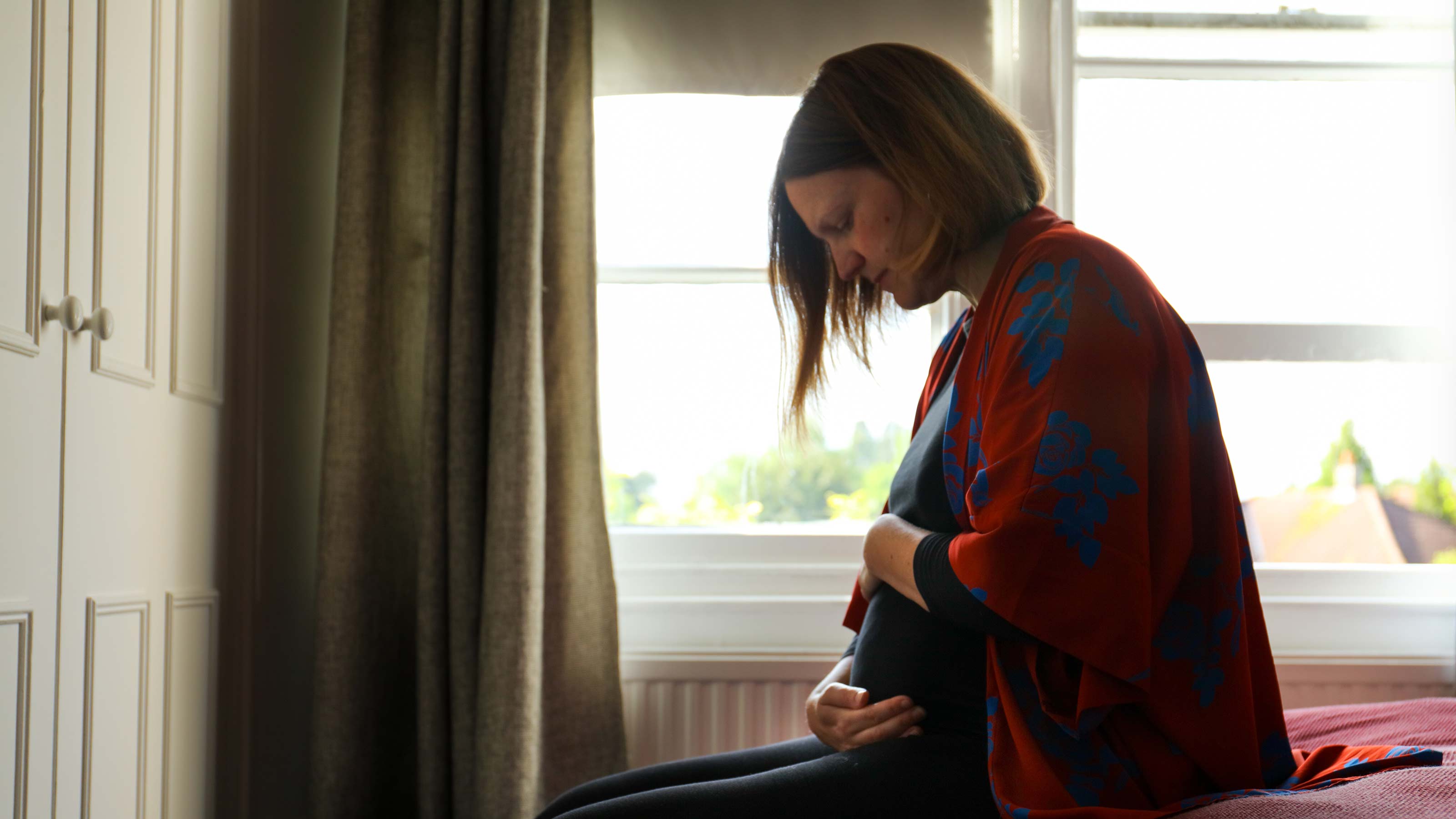Parenting’s new crisis: the loneliness epidemic
National survey uncovers parents face increasing isolation and parental burnout.
Anne Helms works alone. A mother of two from suburban Columbus, Ohio, most of her daily interactions with other adults take place on virtual meetings, her colleagues making up tiny squares on her computer screen.
“There are some days where the most chit-chat or idle talk that I get is with my dog, because I work alone,” she says.
Helms isn’t alone in her feelings of isolation. A recent national survey conducted by The Ohio State University Wexner Medical Center finds that a broad majority of parents of kids under 18 experience isolation, loneliness and burnout from the demands of parenthood, with many feeling a lack of support in fulfilling that role.

Demands of work, parenting increase isolation
“It’s pretty obvious that there is a huge difference between a virtual meeting and being in person,” says Kate Gawlik, DNP, a researcher on parental burnout and a mother of four young children.

“You miss a lot of those small interactions that you'd have in the hallway. Just a lot more of that personal touch has been eliminated, and in many regards, it’s just never come back into our society.”
Helms feels the gap in connecting with others.
“I work from home full-time, and I actually have a job where I’m on camera a lot and I’m Zoom calling people very often,” Helms says. “However, you don’t get the small talk, so you don't get the, ‘How are your children? How's it going?’ And you don’t get a lot of genuine answers when you do ask, ‘How is it going?’”
Survey reveals alarming trends in parental burnout
The survey of parents found:
- About two-thirds (66%) of parents felt the demands of parenthood sometimes or frequently feel isolating and lonely.
- About 62% feel burned out by their responsibilities as a parent.
- Nearly 2 in 5 (38%) feel they have no one to support them in their parenting role.
- Nearly 4 in 5 (79%) would value a way to connect with other parents outside of work and home.
- Parents earning less than $75,000 a year were more likely to say they feel isolated and lonely and have no one to support them.
“Even the places that I do try and seek out other parents, it’s kind of like we’re lost in the shuffle because it’s at daycare drop-off or pick-up, where everyone just has tunnel vision,” Helms says. “And I think it’s hard to make friends when you’re feeling vulnerable.”

Why loneliness is a problem for parents
Loneliness isn’t just a feeling, according to Dr. Gawlik. In her work, she sees alarming health-related impacts of loneliness.
“Loneliness has been shown to affect both your physical and mental health,” Dr. Gawlik says. “So, anything from cardiovascular disease to depression, anxiety, cognitive decline, even your immune system can be affected when you’re lonely. In fact, one study showed that if you are in social isolation for a prolonged amount of time, it’s equivalent to smoking about 15 cigarettes a day.”
“It would be wild if you weren’t burned out.”
In response to the realities of parental isolation, loneliness and burnout, Dr. Gawlik created a six-week parenting program that brings parents together to be vulnerable, commiserate about challenges they face and find support. It’s where Helms realized she wasn’t alone.
“I think the biggest thing is she validated that if you’re working and you have children and you’re a conscientious parent, it would be wild if you weren’t burned out,” Helms said. “So I felt very validated when she said, ‘It’s OK that you’re here.’”

Gawlik also stressed the need for self-care and the value of connection.
“To have somebody that you can relate to and that feeling of connection can be so powerful when it comes to combating feelings of loneliness,” Dr. Gawlik says.
“I think it equips us to create better futures for our children; I think it makes us healthier,” Helms says. “I think that the ripple effect from connecting with other parents and getting support when you need it is immeasurable. It makes you a better employee. It makes you a better spouse, parent, friend. I think that it just enriches our lives … just like parenting does, but it just makes you level up.”
Take the first steps to get help with parental burnout
Dr. Gawlik recommends doing an online search for parent groups in your community, whether they are hosted at community centers or through your employer. Parents can also look for playgroups, book clubs, recreational sports leagues or initiate talking to parents about scheduling playdates with their little ones’ friends from child care.
“Parenting can feel very lonely at times, but it will be easier if you have people around who can support you,” Dr. Gawlik says.
“It can be hard to start seeking out connections because, to some degree, you will have to be vulnerable and, sometimes, it will take time and effort.
“But just take the first step.”





